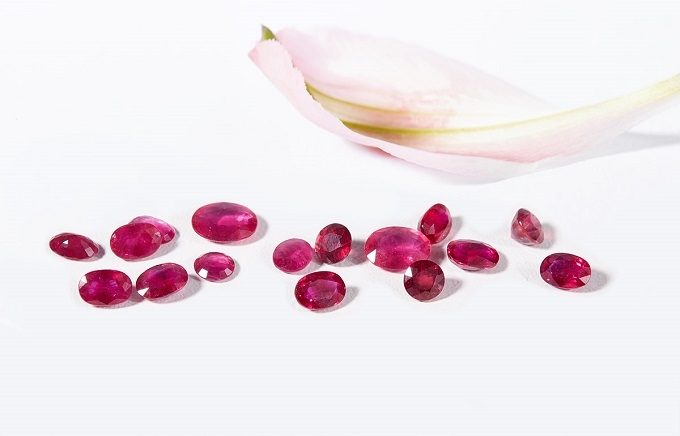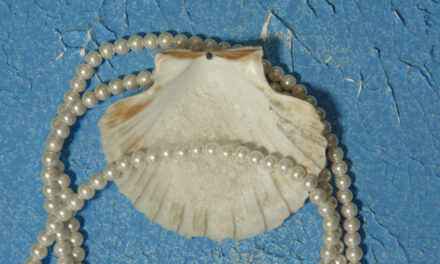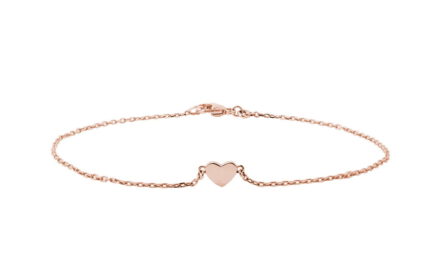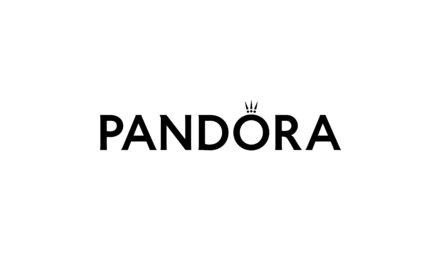Ruby is the most traditional and popular red gemstone ever. Its name comes from the Latin word “ruber”, meaning red. This precious gemstone is composed of the red mineral corundum, formed from aluminium oxide. Because of the element named chromium, Ruby’s colour varies from light pinkish red to deep red with hints of purple or blue. The most preferred colour is a rich red with a bluish tint. Ruby with this colour is called the “Pigeon’s Blood Ruby”. Rubies are typically mined in Myanmar, Thailand and Sri Lanka.
Together with Diamond, Amethyst, Sapphire and Emerald, Ruby belongs to the group of traditional cardinal gems, which is a group of gemstones, which have traditionally been more precious than others.
Another variety of Corundum is Sapphire, which occurs in many colours besides red. Besides the colour, Ruby and Sapphire are almost identical in all properties, which basically means that Ruby is a red Sapphire. Due to the historical meaning and stunning appearance, Ruby was never classified as a variety of Sapphire and is proudly identified as an individual precious gemstone.
CONTENTS:
WHAT IS THE HISTORY OF RUBY?
Ruby is one of the most historical gemstones, which has been connected to legends and myths. Also, Rubies have always been associated with beauty, power, wisdom and passion. This association is mentioned four times in the Bible. There are many records of Rubies being also associated with leadership and success. For example, Hindus believed that those, who would give Rubies to the god Krishna, were meant to be reborn as emperors. Myanmar has been the main source of Rubies since 600 AD and Mayrmar warriors in that time depended on Rubies to make them invincible in battles and wars. In medieval times, Ruby was the most desired gemstone in the royal family and upper classes.
Despite its long and rich history, Ruby wasn’t identified as a variety of corundum until 1800. Also, tourmaline and garnet were for a long time believed to be Rubies. Another significant gemstone, which was considered to be a Ruby, was the Black Ruby, one of the most famous crown jewels in England.
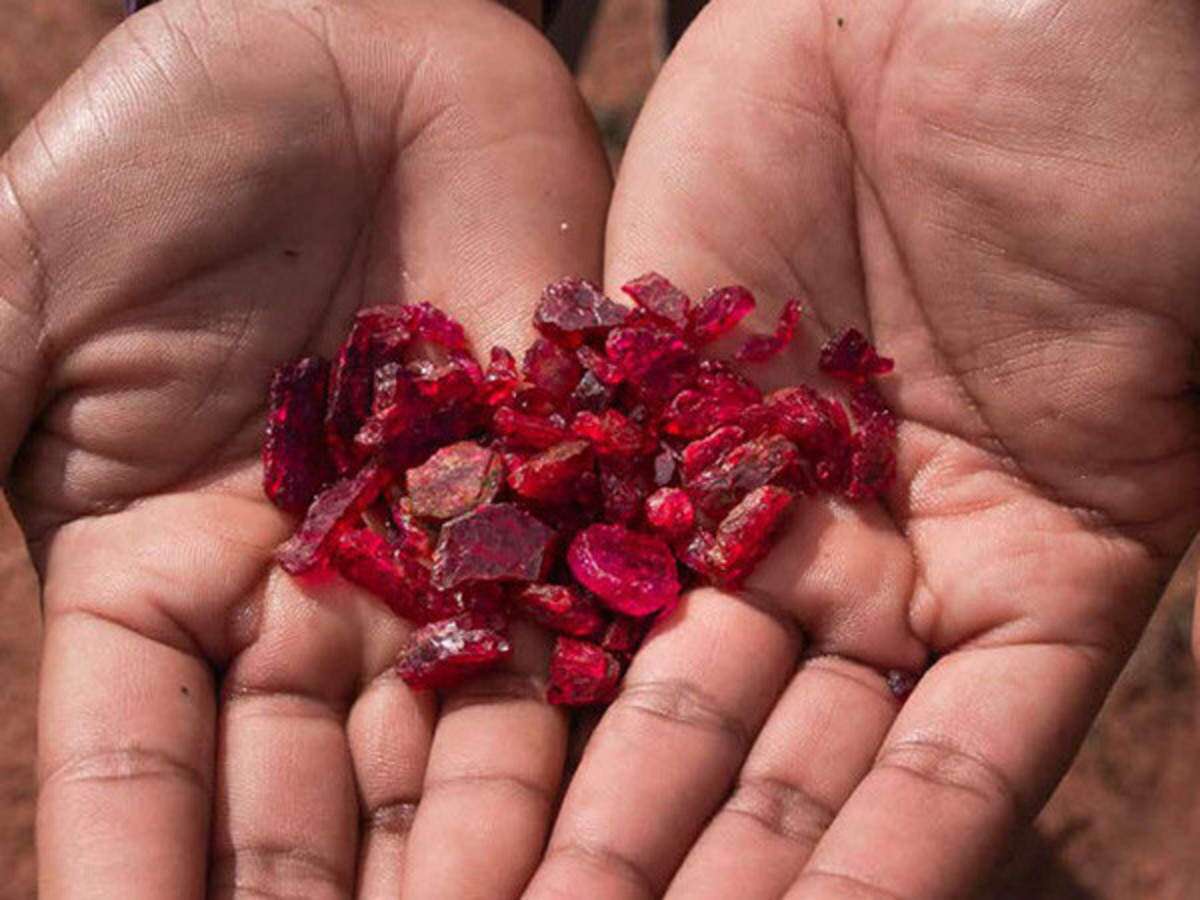
HOW TO TELL IF THE RUBY IS REAL OR NOT?
Same as Sapphire, Rubies are the number 9 on the Mohs scale, meaning that they are pretty sturdy and durable, making them an excellent choice for any jewellery piece. Due to its properties and few mining spots, it is not that easy to find natural Ruby with high clarity. Natural Rubies are also quite expensive, but still irreplaceable precious gemstones that will last your lifetime.
If you want to know if your Ruby is natural or lab-made, you need to know a few things about natural Rubies. First, natural Rubies normally have a few inclusions in them. On the other hand, lab-made Rubies are always without inclusions and absolutely flawless. Another big red flag is the price. Same as other precious gemstones, like Diamonds, Emeralds and Sapphires, Rubies are expensive. So, if you’ve come across a cheap Ruby, it is most likely going to be synthetic. This is also connected to the size. If you see a large cheap Ruby, there is a significant change that it’s lab-made. If you want to be 100% sure that your Ruby is natural, find an expert, who will look at the stone’s structure under a microscope.
RUBY JEWELLERY
As said before, Ruby has a rating of 9 on the Mohs scale, which makes it the second most durable gemstone, together with Sapphire. Because of its durability and protection against scratching or cracking, Ruby is perfect for any type of jewellery, including bracelets, necklaces, earrings and rings.
It is safe to say that Rubies will look stunning on every woman, regardless of age, shape or tone of the skin. The most common shapes used for Ruby gemstones are cushion and oval, which are mainly used in rings and earrings. However, Rubie’s hardness makes it suitable for cutting in any desired shape. For example, the pear shape is a very popular shape used in Ruby necklaces.
Rubies look amazing with any type of gold. White gold and the deep red colour make a great and modern contrast, which helps the gemstone to stand out. Yellow gold looks traditional and vintage in combination with the fiery red colour of Ruby. Rubies will look great in eternity or engagement rings on the hand of a young lady. Ruby is also said to represent love and happiness in a relationship, so it’s no surprise that Ruby is also the 40th wedding anniversary ring. Rubies make a great combo with diamonds, as they both are pure and luxurious.

